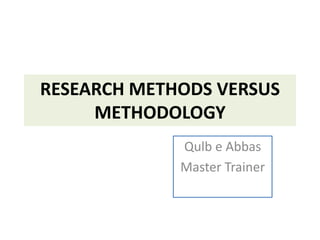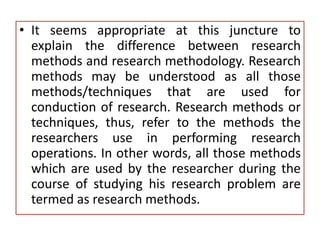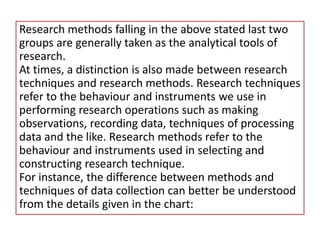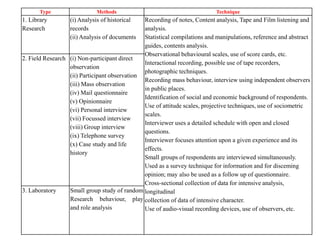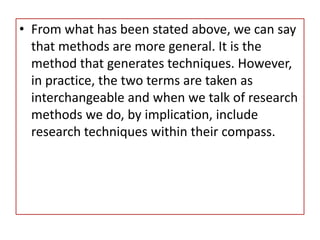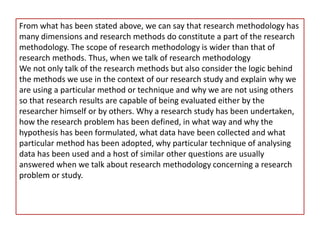Research methods refer to the specific techniques used to collect and analyze data, such as surveys, experiments, and statistical analysis. Research methodology is the overarching planning and structure of the research. It encompasses research methods, but also includes how the problem is identified and a hypothesis is developed, how data is collected and analyzed, and how the results will be evaluated. Research methodology demonstrates logical and systematic planning to ensure scientific validity, while research methods are the tools used within that methodology.
